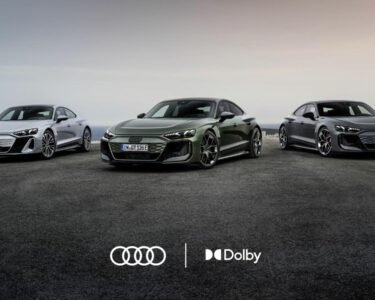The country’s love affair with electric cars has been on a rocky road as of late with interest waning over over the last several months creating a headache for a Government and industry hoping to reach climate change targets.
Following a boom in 2023, EV sales so far this year have been on a worrying downward trend with numerous car companies seeing a reduction in demand as customers evaluate their options.
This poses a major problem for the Government’s own electric car adoption targets and unless customers make a drastic change in their behaviour soon, they are likely to be missed.
Adding to the turmoil in the market is the imposition of EU tariffs on Chinese-made electric cars which will only add to the cost of already expensive electric vehicles and could further hinder their adoption in Ireland.
Under the Climate Action Plan, the Government initially set a target of having 175,000 electric passenger cars on the road by the end of 2025 which would increase to 845,000 by the end of 2030. However, as it stands the country is on course to undershoot those numbers.
According to the Department of Transport, as of the end of July, there are 69,891 private battery electric cars taxed and on the road. There are also 58,426 plug-in hybrid electric vehicles for a combined total of 128,317.
In order to meet even next year’s target, these numbers would need to pick up significantly but figures from the Central Statistics Office (CSO) show that electric car sales this year are 24% lower than in 2023 with just 12,765 registered between January and July.
The number of new petrol-electric hybrid cars licensed during this period rose by 33% to 19,230 but only 8,549 were plug-in hybrids and according to a department spokesperson, it does not consider non-plug-in hybrids to be part of the electric fleet.
Researchers from University College Cork have estimated that to hit the country’s electric car targets, 41,000 new electric and plug-in hybrids would need to be brought on stream in order to stay on track and that that would need to grow to 185,000 a year by 2030.
 Professor of Transportation at Trinity College Dublin Brian Caulfield
Professor of Transportation at Trinity College Dublin Brian Caulfield
Professor of Transportation at Trinity College Dublin Brian Caulfield said to keep on track the adoption of electric cars would need to be 25% higher than last year but as it stands “we’re 50% off where we need to be”.
“We do have a target of 175,000 by the end of next year. I had thought for a long time that that was possible, I don’t anymore. Not at the current trajectory that we’re on,” he said.
Prof Caulfield said that 42% of the transport emission reductions are set to come from increasing use of public transport and a reduction in the overall need for trips.
However, 58% of it is “lumped into electric vehicles, be they personal or commercial”.
“Almost 60% of the plan is being bet on these electric vehicles and we can currently see that they are down and it is not a blip. It has been consistent.”
“What other sectors can take up the slack? We’re not building public transport, there’s no construction on a public transport system in Dublin right now so that is not happening quick enough.
At this moment, Prof Caulfield said it is likely that the targets are going to be pushed out which will result in fines from the EU.
A spokesperson for the Department of Transport said the Government maintains a generous range of supports to aid the transition to electric vehicles including the €3,500 incentive, vehicle registration tax relief, and home charging schemes.
“In addition, we are investing €100m up to 2025 in EV infrastructure, as we look to accelerate the delivery of EV charging across our national road network and local and regional network,” the spokesperson said.
Last month, Transport Minister Eamon Ryan announced 131 new high-powered recharging points for electric vehicles are to be built across 17 recharging pools along major roads.
The spokesperson said the country currently has 135,000 electric vehicles on the road and “we are currently on course to meet our 2025 targets”.
However, the country only has over 135,000 electric vehicles on the road if electric light goods vehicles, electric heavy goods vehicles and other vehicle classes are included in the total- which account for 7,655.
All of these vehicle classes have their own targets under the Climate Action Plan outside of the ones set for private passenger cars.
 Director General of the Society of the Irish Motor Industry Brian Cooke.
Director General of the Society of the Irish Motor Industry Brian Cooke.
Director General of the Society of the Irish Motor Industry Brian Cooke said there are various reasons as to why there is a slowdown in the electric car market one of which is that the number of “early adopters” is “probably exhausted” and “we’re moving on now to what they call early mass market adoptees and they do need more convincing”.
“Electric vehicles are still more expensive than combustion engine vehicles.
“Before grants, the average price of a new electric vehicle in Ireland is about €50,000 which is about €13,000-€14,000 more than a combustion engine car,” he said.
While the actual ownership costs of electric cars are less, he said it still takes a bigger ask for people to spend that much more money.
“What we’re hearing from our members is that they are harder to sell particularly to first-time customers,” he said.
“Some of it is range anxiety, we will see that as less and less of a problem over the next three or four years but at the moment it still is there.
“If you look at most new electric vehicles, they have a range of between 350km and 600km.
“For most people that would cover 95% of their driving.”
Mr Cooke added that they hear a lot of “scare-stories” about battery degradation “which just aren’t true”.
“Most manufacturers have an extended warranty on the battery which is seven to eight years which is beyond what they do for their combustion engine cars. The degradation is a very small amount annually.”
In addition, both Mr Cooke and Prof Caulfield said that the rollout of charging infrastructure needs to be sped up.
Last year, the Government reduced the electric car incentive from €5,000 to €3,500 and the grant for a home charger installation was cut from €600 to €300.
Mr Cooke said the timing of the reduction in grants in “hindsight looks like it was probably too early”.
In the forthcoming budget, Prof Caulfield said he would like to see the home charger grant “quadrupled” for people living in rural parts of the country similar to what is already done in Scotland.
He said this would be part of the just transition as these people living in these areas are more reliant on cars and have fewer public transport options.
The slowdown in electric car demand has prompted manufacturers to temper strategies and investments.
Europe’s biggest automaker Volkswagen said it is reducing capacity at high-cost plants in Germany to control costs and it has stopped hiring. Volkswagen said it is “adapting” its battery-making plans under its PowerCo unit.
Other car markers such as Renault, Nissan and Stellantis all reported lower profits during the first half of the year.
Tesla, which only manufactures electric cars, reported a 5% drop in deliveries during the April to June period.
Another potential obstacle to the further adoption of electric cars in Ireland comes from EU tariffs being placed on Chinese-made electric cars which can go as high as 37.6%.
This was in response to allegations that Chinese companies were benefiting from unfair subsidies which Beijing denies.
On the tariffs, Mr Cooke said it is a bit early to see their full impact but Ireland’s experience with Brexit shows that trade barriers “aren’t really a good idea”.
“I would hope that the EU and the Chinese authorities can come to a sort of agreement that ultimately sees the need for those tariffs to not be in place going forward,” he said.






